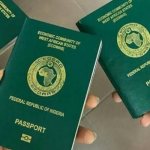Thousands of Nigerians working in the United Kingdom are facing uncertainty after the UK government scrapped over 100 skilled jobs from the Certificate of Sponsorship (CoS) list.
The new regulation, which took effect on July 22, 2025, means many of them may no longer qualify to live and work legally in the country.
The affected roles range across hospitality, health, creative industries, and law enforcement. Some of the delisted positions include actors, dancers, translators, fashion designers, community workers, opticians, prison officers, and even police officers below sergeant level.
The UK also raised the minimum salary for Skilled Worker visas to £41,700, up from around £24,000 to £26,000. Those in health and care roles must now earn at least £25,600 *after* all deductions like accommodation or transport have been made.
These changes are part of the UK’s attempt to reduce immigration by cutting back on lower-skilled jobs, now requiring that most sponsored roles be at bachelor’s degree level or higher.
A UK-based travel agent and visa consultant, Kayode Alabi, warned that many Nigerians on CoS visas may be forced to return home once their current contracts end.
“No Nigerians have been sacked because of the new regulations,” Alabi explained. “But their fate will hang in the balance because at the end of their current sponsorship, those whose jobs have been removed from CoS eligibility will not be able to find a new job in that category, and their visa will not be renewed. If you don’t have a valid visa, you become an illegal immigrant.”
Alabi added, “Even those whose jobs are still eligible might be affected. Will their employers be able to pay the new salary threshold of £41,700? That’s the big question.”
He commented that panic is already setting in among the Nigerian community in the UK. “We can say there is panic among our people. Yes, there is. People don’t know what will become their fate at the expiration of their sponsorship, especially when the eligibility criteria for other jobs have been increased. People are afraid.”
Banjo Fola, a Nigerian living in the UK, confirmed the anxiety. “My visa with this current job will expire in some months, and my employer has said he cannot afford the new salary threshold. It is very hard. I don’t even know what to do,” he said.
Another Nigerian, a caregiver who asked not to be named, said, “My sponsorship will expire in August, and the new regulation has made it impossible to get a new job because of the salary threshold. I may likely return home.”
A similar concern was raised by another Nigerian on CoS. “Things are not easy. The new rules have cut short our plans to stay longer here,” he explained. “My current job has been removed from the list. I came here in February 2023 on a Certificate of Sponsorship. My sponsorship is for three years, so I have less than a year to find another job, which is not even there because of the new salary threshold.”
The Chief Executive Officer of Cardinal E-School and Edu Services, Sulaimon Okewole, said the changes could affect over 10,000 Nigerians currently in the UK.
“While the UK government’s goal of reducing net migration is understandable, the impact on Nigerians, a community known for its immense contribution to the UK’s workforce, demands some discussions,” he commented.
“The most immediate concern is the sharp rise in salary thresholds for Skilled Worker visas. For many Nigerians, especially those in sectors like healthcare and IT, this could mean fewer job offers unless UK employers adjust pay scales. This may be a tough task in an economy already dealing with inflation,” he added.
He said the new rules may discourage Nigerian professionals from choosing the UK. “It is no doubt that over 10,000 Nigerians will be affected by this new regulation, as they will probably return home or find another destination.”
A student of the University of Ibadan, Eniola, whose mother works as a caregiver in the UK, said her family is already affected.
“She has practically lost her job because the sponsorship will come to an end in November,” Eniola said. “She informed me that her job has been delisted, and she is not sure she will find a fresh sponsor or new job. I can tell from our conversation that she is afraid.”
Data from the UK Home Office shows 10,245 Nigerians were issued Skilled Worker visas in 2021, 8,491 in 2022, and 26,715 in 2023. But for 2024, fewer work visas have been issued to Nigerians, especially in the Health and Care Worker category.
Experts say the new rules could leave thousands stranded unless they secure new jobs that meet the tougher conditions.











